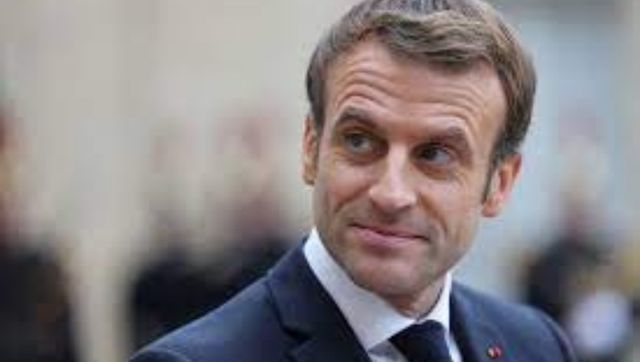France is considering legalising assisted suicide. On Monday, President Emmanuel Macron said a new law would be drafted on the end-of-life procedure by the end of summer. The move comes two days after the committee of 184 French citizens tasked by the presidency with drawing up a non-binding recommendation approved legalising “active assistance to dying”. Macron told members that their opinion would constitute a “starting point”, but warned the government would not necessarily follow their suggestions. “I do not promise you we will pick up one or another of your conclusions. They will take their course,” the 45-year-old said. Let’s take a closer look at assisted dying: France has allowed ‘passive euthanasia’ since 2005. However, active euthanasia and assisted suicide remain banned. First, let’s briefly examine the differences between the three. Passive euthanasia refers to when medical care is withheld or pain management medication is prescribed in increasingly larger doses, as per Medical News Today. France in 2016 passed a law letting doctors couple this with “deep and continuous sedation” for terminally ill patients in pain. The law, however, does not allow doctors to administer or provide a lethal dose, as per The Guardian. Active euthanasia is when a lethal substance or force is used by someone to end an individual’s life.
Assisted suicide has several definitions.
One of them being helping someone of sound mind and volition take their own life by providing drugs that are to be self-administered. Assisted suicide in France Up to 70 per cent of French people are in favour of active help in dying, according to a survey of 1,000 people published on Sunday by newspaper Journal du Dimanche. But just 36 per cent said they would actually consider it for themselves if they were suffering from a painful and incurable illness. As per The Guardian, the committee determined that assisted dying should be an option only for those that can express their wishes “at any time” and not for those suffering dementia or Alzheimer’s disease. But l’Ordre des Médecins, the national council of doctors of France, remains opposed to assisted dying, as per the newspaper. Opinions are also divided over euthanasia and assisted suicide in the National Assembly. Most on the left and a part of the centre back legalisation, but the right is mostly against it. Last year, news that French director Jean-Luc Godard died by assisted suicide in Switzerland – where he was living as a recluse for years – shocked many. [caption id=“attachment_11243961” align=“alignnone” width=“640”] File image of Jean-Luc Godard died of assisted suicide in September.[/caption] Macron in September, paying tribute to Godard as a ‘national treasure’, had announced a national debate on end-of-life options that will include exploring the possibility of legalizing assisted suicide.
DW previously quoted Macron as saying “a personal opinion that can evolve” on assisted suicide.
He added that a head of state has “a responsibility for agreement and a wish for appeasement.” Since being elected in 2017, Macron has often been accused by critics of an imperious, top-down style of governing, a feeling that contributed to sparking the “Yellow Vest” protests of 2018 and 2019. After winning a second term last year, the former investment banker vowed to carry out “broad national consultation” on a variety of topics. But critics say his government has largely ignored the results of a previous citizen brainstorming session on climate change. In recent weeks, he has faced growing public anger over the divisive pension reform his government forced through the hung lower house of parliament, fuelling unrest across the country. European countries open door to assisted dying A growing number of countries have over the past few decades opened the door to assisted dying for those in need. Italy in 2022 for the first time gave assent to the assisted suicide of a man who had been paralysed for over a decade, as per DW. The Netherlands became the first country in the world to legalise both active euthanasia and assisted suicide on April 1, 2002, for patients actively choosing to end “unbearable suffering with no prospect of improvement”. Belgium, Luxembourg and Spain have since followed suit, while Switzerland – which prohibits euthanasia – has for decades allowed assisted suicide. The Netherlands and Belgium have expanded the law to decriminalise euthanasia for some terminally ill children, with the consent of their parents. With inputs from agencies Read all the Latest News , Trending News , Cricket News , Bollywood News , India News and Entertainment News here. Follow us on Facebook, Twitter and Instagram.


)

)
)
)
)
)
)
)
)



